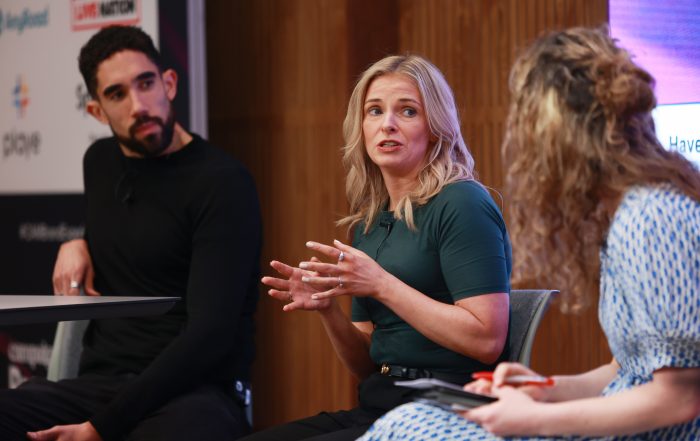
AI, TikTok, and the Race for Search Engine Supremacy
2024 marks a turning point in digital search engines, with Google facing competition from TikTok, Instagram, and AI. Nearly 40% of young users now prefer TikTok or Instagram for searches, from local dining options to fashion advice, reflecting a broader move towards social media as a primary source of discovery.
January 29, 2024
Traditional Search Engines Face New Rivals
The year 2024 stands as a watershed moment in the evolution of search. Traditional gatekeepers like Google now face stiff competition from rising stars such as TikTok, Instagram, and AI technologies. This represents a fundamental shift in how information is sought and consumed, particularly among Gen Z and millennials who are increasingly flocking to Instagram for entertainment, to Pinterest for inspiration, and ChatGPT for educational support. TikTok, in particular, has seen an exponential increase in searches spanning a diverse range—from new recipes, restaurant and travel recommendations, to DIY, fashion, and beauty tips. As the digital realm expands, so too does the array of methods to access information within it. Google may still wear the crown in the search engine kingdom, but the question looms: how much longer can it maintain its reign?
“In our studies, almost 40 percent of young people, when they’re looking for a place for lunch, don’t go to Google Maps or Search. They go to TikTok or Instagram”.
Prabhakar Raghavan, Google senior vice president.
The Changing Face of Search
This shift in search behaviour is underscored by significant statistics. According to a report by DataReportal, out of a global population of 8.03 billion, 4.90 billion users are now actively engaged on social media. But what’s particularly striking is the preference of younger generations for social media as their go-to source for information retrieval. According to research conducted by Sprout Social, a renowned authority on social media trends, 60% of Gen Z users actively favour searching for information on social media platforms, surpassing the use of traditional search engines. The study shows that 45% of millennials and 33% of Gen X users are also embracing social media for their search needs, indicating a broader, cross-generational movement towards new search behaviours. But what’s behind this shift? The answer could reside in a recent advertisement by Lucky Generals and Zenith.
TikTok: Shaping the Language of Search
According to MGH, a marketing and communication agency, 53% of Millennial TikTok users have visited a restaurant or ordered food after seeing it on TikTok. Consumers are increasingly leaning on user-generated content to guide their decision-making processes. They’re leveraging TikTok’s geolocation capabilities to uncover new dining hotspots. This evolution marks a significant departure from the traditional reliance on search engines and review platforms like Google Maps, TripAdvisor, or Yelp.
“The TikTok community isn’t just scrolling. They’re on a serendipitous journey where every flick of the thumb leads to a moment of discovery.”
Sofia Hernandez, Global Head of Business Marketing for TikTok
The Power of Influence in Modern Search Trends
‘It Starts on TikTok‘ places a spotlight on creators and businesses that form the bedrock of the platform. Designed to make it easy for experts to share their knowledge and communicate with a given audience, TikTok has given rise to a vibrant ecosystem of micro-communities centred around diverse subjects, ranging from gardening and digital marketing tips to pranks and beauty routines. Within these communities, influencers have become trusted sources for their followers, answering questions and providing valuable advice that significantly impacts the way consumers behave, learn, share, and search. Personalities like Russ (@hardestgeezer), who is on a mission to become the first person ever to run the entire length of Africa to raise money for charity, and Nicola (@madewithmudpottery), a potter who achieved viral fame for making ceramics accessible to all, exemplify the platform’s focus on user-generated content and authentic narratives.
“Authenticity rules online: Passionate influencers and micro-communities with genuine, engaging content are winning the hearts and minds of audiences”.
Liam Bircham, Head of Social, N2O
The Race for Search Engine Dominance
As we look to the future, one thing is clear: the race for search engine supremacy is no longer a one-horse bet. Platforms like ChatGPT are redefining search by providing personalised interactions, a stark contrast to the keyword-dependent mechanisms of traditional search engines like Google. Yet this shift goes beyond different platforms vying for dominance. It represents a fundamental change in how information is sought, consumed, and valued. The role of user-generated content, from restaurant reviews to travel tips, underscores a more personalised, relatable approach to information sharing that reflects a desire for authenticity and connection in the digital space.
News
Closing the Gap Towards Regulated Political Advertising in the UK
IPM delves into the unregulated landscape of political advertising, drawing insights from industry experts Lord Black and Graham Temple.
IPM & SpaceandPeople Launch CORE – On site, Insight experiential activation tool
IPM announces an innovative collaboration with SpaceandPeople to launch CORE, a Campaign Optimiser for Retail & Experiential marketing.
IPM at Brand Experience 360: Key Industry Takeaways
Dive into the future of experiential marketing with key industry takeaways from Brand Experience 360.
January 29, 2024
Traditional Search Engines Face New Rivals
The year 2024 stands as a watershed moment in the evolution of search. Traditional gatekeepers like Google now face stiff competition from rising stars such as TikTok, Instagram, and AI technologies. This represents a fundamental shift in how information is sought and consumed, particularly among Gen Z and millennials who are increasingly flocking to Instagram for entertainment, to Pinterest for inspiration, and ChatGPT for educational support. TikTok, in particular, has seen an exponential increase in searches spanning a diverse range—from new recipes, restaurant and travel recommendations, to DIY, fashion, and beauty tips. As the digital realm expands, so too does the array of methods to access information within it. Google may still wear the crown in the search engine kingdom, but the question looms: how much longer can it maintain its reign?
“In our studies, almost 40 percent of young people, when they’re looking for a place for lunch, don’t go to Google Maps or Search. They go to TikTok or Instagram”.
Prabhakar Raghavan, Google senior vice president.
The Changing Face of Search
This shift in search behaviour is underscored by significant statistics. According to a report by DataReportal, out of a global population of 8.03 billion, 4.90 billion users are now actively engaged on social media. But what’s particularly striking is the preference of younger generations for social media as their go-to source for information retrieval. According to research conducted by Sprout Social, a renowned authority on social media trends, 60% of Gen Z users actively favour searching for information on social media platforms, surpassing the use of traditional search engines. The study shows that 45% of millennials and 33% of Gen X users are also embracing social media for their search needs, indicating a broader, cross-generational movement towards new search behaviours. But what’s behind this shift? The answer could reside in a recent advertisement by Lucky Generals and Zenith.
TikTok: Shaping the Language of Search
TikTok is at the forefront of a profound shift where language and traditional text-based interactions are giving way to a new era of video-based information consumption. According to MGH, a marketing and communication agency, 53% of Millennial TikTok users have visited a restaurant or ordered food after seeing it on TikTok. Consumers are increasingly leaning on user-generated content to guide their decision-making processes. They’re leveraging TikTok’s geolocation capabilities to uncover new dining hotspots. This evolution marks a significant departure from the traditional reliance on search engines and review platforms like Google Maps, TripAdvisor, or Yelp.
“The TikTok community isn’t just scrolling. They’re on a serendipitous journey where every flick of the thumb leads to a moment of discovery.”
Sofia Hernandez, Global Head of Business Marketing for TikTok
The Power of Influence in Modern Search Trends
‘It Starts on TikTok‘ places a spotlight on creators and businesses that form the bedrock of the platform. Designed to make it easy for experts to share their knowledge and communicate with a given audience, TikTok has given rise to a vibrant ecosystem of micro-communities centred around diverse subjects, ranging from gardening and digital marketing tips to pranks and beauty routines. Within these communities, influencers have become trusted sources for their followers, answering questions and providing valuable advice that significantly impacts the way consumers behave, learn, share, and search. Personalities like Russ (@hardestgeezer), who is on a mission to become the first person ever to run the entire length of Africa to raise money for charity, and Nicola (@madewithmudpottery), a potter who achieved viral fame for making ceramics accessible to all, exemplify the platform’s focus on user-generated content and authentic narratives.
“Authenticity rules online: Passionate influencers and micro-communities with genuine, engaging content are winning the hearts and minds of audiences”.
Liam Bircham, Head of Social, N2O
The Race for Search Engine Dominance
Platforms like ChatGPT are redefining search by providing personalised interactions, a stark contrast to the keyword-dependent mechanisms of traditional search engines like Google. Yet this shift goes beyond different platforms vying for dominance. It represents a fundamental change in how information is sought, consumed, and valued. The role of user-generated content, from restaurant reviews to travel tips, underscores a more personalised, relatable approach to information sharing that reflects a desire for authenticity and connection in the digital space.
News
Closing the Gap Towards Regulated Political Advertising in the UK
IPM delves into the unregulated landscape of political advertising, drawing insights from industry experts Lord Black and Graham Temple.
IPM & SpaceandPeople Launch CORE – On site, Insight experiential activation tool
IPM announces an innovative collaboration with SpaceandPeople to launch CORE, a Campaign Optimiser for Retail & Experiential marketing.
IPM at Brand Experience 360: Key Industry Takeaways
Dive into the future of experiential marketing with key industry takeaways from Brand Experience 360.




